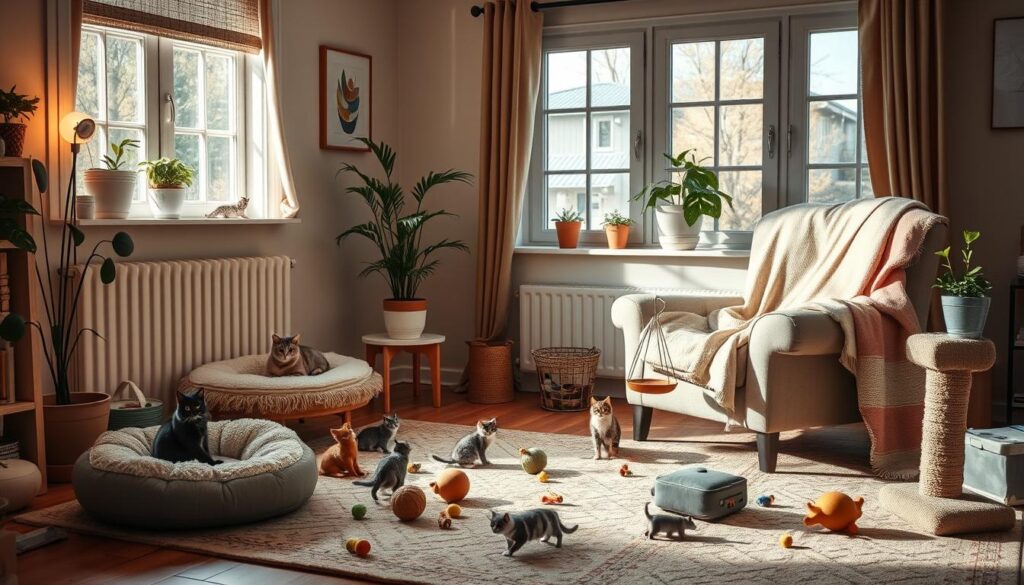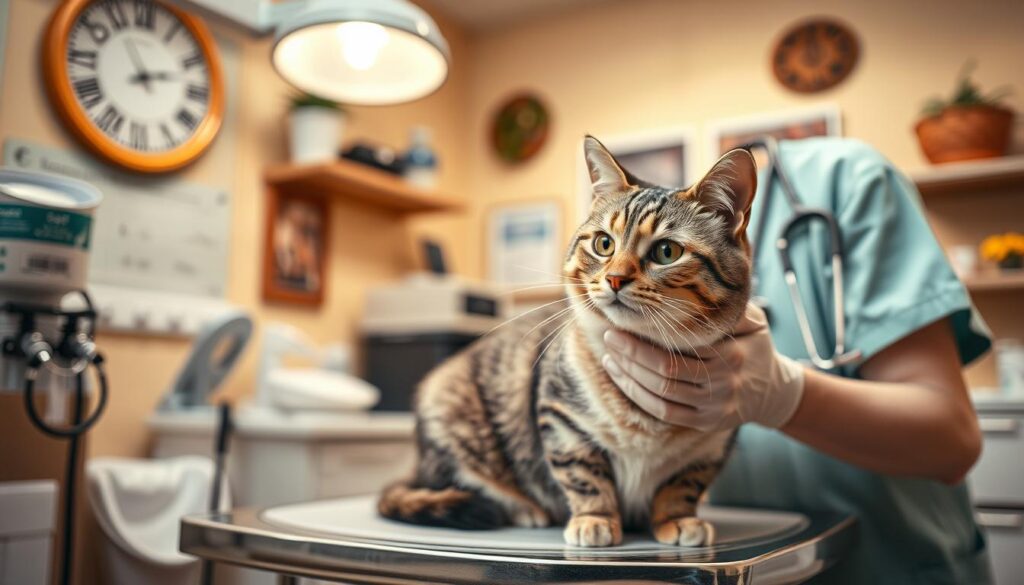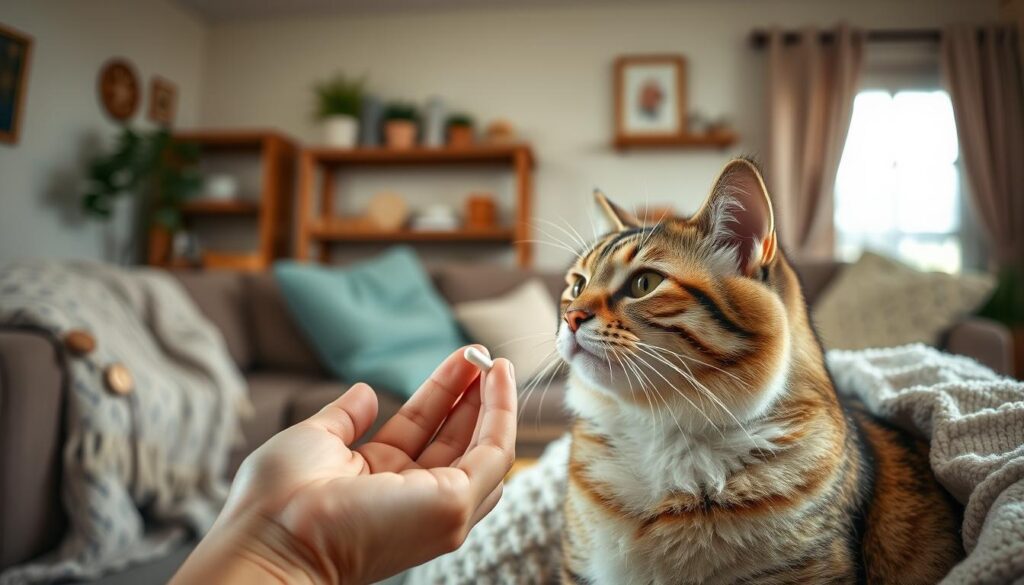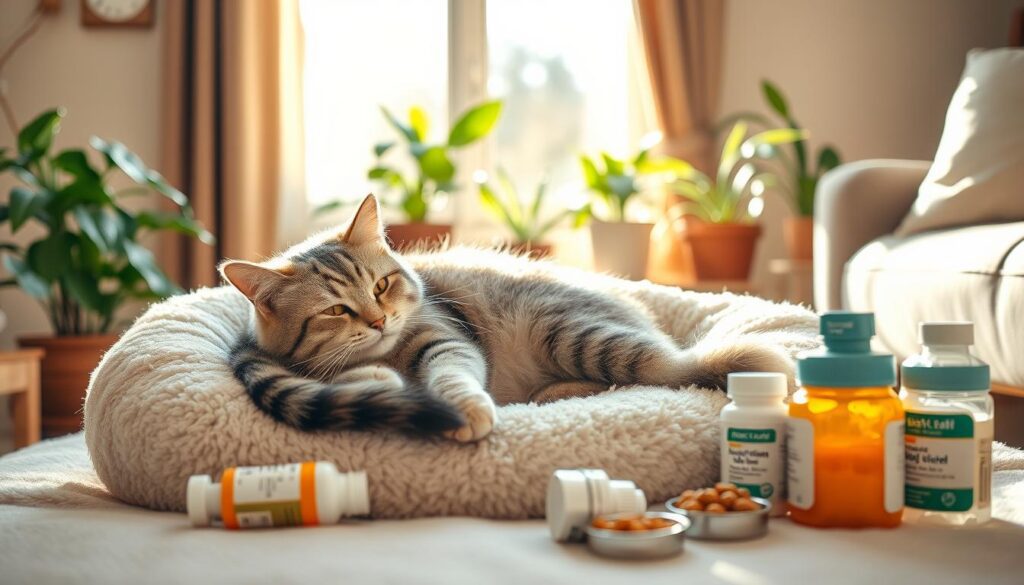As we celebrate the lives of our furry companions, many cat owners may not realize that the world of senior cat care has transformed dramatically in recent years. Take, for instance, a dedicated cat mom who over the years has lovingly provided for her feline friend. Once a spry indoor adventurer, her cat recently turned fifteen, and she now finds herself grappling with the complexities of elderly cat care.
With a big heart and a wealth of information at her fingertips, she’s on a mission determined to tackle common cat health issues that often arise in golden years. From understanding signs of arthritis to adapting her home for safety and comfort, she embodies what it means to care for a senior cat with health issues. The reality is that today, cats are considered seniors around 12 to 14 years old, and with access to improved nutrition and veterinary care, many are living well into their twenties.
This guide is dedicated to helping you navigate the essential aspects of senior cat care, ensuring your beloved friend enjoys a comfortable, healthy life in their later years. By monitoring their physical condition, adjusting their diet, and committing to regular veterinary checkups, you can provide the best quality of care. Let’s dive into understanding the common health issues faced by senior cats and how you can be prepared for them!
Key Takeaways
- Cats are now considered seniors at 12 to 14 years old.
- Regular health checkups are vital; twice yearly is recommended for senior cats.
- Common health issues include obesity, kidney disease, and arthritis.
- Aging cats often require nutritional adjustments and monitoring for hydration.
- More frequent grooming can aid in their comfort as self-grooming may decline.
Understanding the Common Health Issues in Senior Cats
Senior cats experience a variety of health challenges, often due to aging and chronic conditions. Recognizing these issues is vital for senior cat health care, ensuring that your feline friend receives the appropriate attention and treatment. Below, we delve into three prevalent health concerns, providing essential cat health tips for effectively managing senior cat health.
Arthritis: Signs and Management
Osteoarthritis is a common ailment in senior cats, causing discomfort and mobility issues. Signs of arthritis include stiffness, reluctance to jump or climb stairs, and changes in behavior that may indicate pain. Managing arthritis can involve weight control, anti-inflammatory medications, and supportive therapies such as physical therapy or acupuncture. Regular veterinary assessments are crucial for tailoring a management plan suited to your cat’s needs.
Kidney Disease: Symptoms and Care
Chronic kidney disease (CKD) is prevalent among older cats and often leads to serious complications. Typical symptoms include increased thirst and urination, weight loss, and occasional vomiting. Early detection through regular vet visits can significantly improve outcomes. Treatment generally focuses on diet management, adequate hydration, and routine monitoring to maintain kidney function effectively.
Dental Problems: Prevention and Treatment
Dental disease is particularly common in senior cats, with periodontal disease leading to more severe health issues if left untreated. Signs may include bad breath, reddened gums, and difficulty eating. Ensuring proper dental care, such as regular check-ups and cleanings, is essential in preventing complications like infections or organ dysfunction. Implementing effective dental hygiene practices contributes to the overall well-being of senior cats.
Creating a Comfortable Living Environment
Aging can bring unique challenges for cats, making the creation of a comfortable living environment essential for senior cat care. Prioritizing comfort and accessibility greatly enhances the overall well-being of elderly cats.
Soft Bedding and Accessibility
Providing soft bedding in a quiet area helps senior cats feel safe and secure. Opt for non-drafty, warm locations to ensure they can rest comfortably. Accessibility is a crucial factor, especially for cats experiencing mobility issues. Elevated feeders can prove beneficial, enabling them to consume food and water without straining their joints.
Safe and Quiet Spaces
Creating safe, quiet spaces is important for managing stress in senior cats. They tend to be more sensitive to anxiety, so a retreat area with minimal disturbances can significantly enhance their quality of life. Designate specific corners of your home for peaceful relaxation, complete with their favorite blankets.
Litter Box Considerations
For elderly cat care, litter box accessibility plays a significant role. It is advisable to use low-sided boxes to accommodate limited mobility, making it easier for your cat to enter and exit. Place these boxes near their sleeping and eating areas to encourage regular use without overwhelming them.

Nutrition for Senior Cats with Health Concerns
The nutrition for senior cats holds paramount importance, especially as they face various health issues. Understanding their specific needs can lead to better overall health and well-being. Consult a veterinarian for personalized dietary advice tailored to your senior cat’s requirements, helping to manage weight and chronic conditions effectively.
Feeding Guidelines for Specialized Diets
For senior cat health care, specialized diets play a vital role. Cats aged seven and above may benefit from foods that are high in quality and easily digestible. It’s essential to control portion sizes and reduce calorie intake by 20% to 25% daily to help prevent obesity and other age-related issues. This reduces the risk of conditions like diabetes, which is common among older cats. Always consider high-fiber options that support digestive health, especially for cats prone to constipation.
Hydration: Importance and Tips
Proper hydration is crucial for senior cats, as their thirst response diminishes with age. Cats with kidney disease particularly need to stay hydrated to support their metabolic functions. Providing canned food can increase fluid intake significantly. Offer multiple water stations throughout the home and consider using water fountains to encourage drinking. This helps combat chronic dehydration, which can worsen medical conditions.
Supplements: When and What to Use
Supplements may support senior cat health care but should be used with caution and veterinary guidance. Omega-3 fatty acids can promote joint health and aid with inflammation, while certain vitamins and minerals might be essential for overall well-being. It’s important to engage with your vet before introducing any over-the-counter nutritional supplements, as many are not well-studied in cats, and some may not align with their unique dietary needs.
Regular Veterinary Check-Ups
Routine veterinary care plays a critical role in sustaining the health of senior cats. With the aging process, specific cat health issues become more likely, making timely interventions essential. Regular visits allow veterinarians to identify potential concerns early on, which can significantly affect the quality of life.
Importance of Routine Health Screenings
Senior cat health checks are vital for monitoring overall well-being. Cats aged nine years and older should have wellness exams every six months. These assessments typically include blood work and urinalysis, crucial for identifying conditions like kidney disease and diabetes before they escalate. Regular screenings help ensure that health issues are caught in their early stages, allowing for better management and care.
Vaccinations and Wellness Plans
Maintaining an updated vaccination schedule is important. As the cat’s lifestyle and health status evolve, so do vaccination needs. A personalized wellness plan, often developed in conjunction with your veterinarian, can include dietary assessments and necessary diagnostics. This tailored approach empowers owners to address the unique health requirements of their senior cats.
Monitoring Weight and Body Condition
A close eye on changes in weight and body condition is essential. Fluctuations may signal underlying cat health issues, necessitating prompt veterinary attention. A consistent monitoring strategy ensures that adjustments can be made to the cat’s diet and care routine as needed. An emphasis on routine veterinary care and health screenings will help keep your furry friend in optimal shape.

Maintaining Mental and Emotional Well-Being
Taking care of senior cats involves more than just addressing physical health issues. Ensuring their emotional well-being plays a critical role in overall health. Maintaining mental well-being for these aging felines can significantly enhance their quality of life. A consistent daily routine offers stability, making your senior cat feel more secure in their environment.
Consistent Routine: The Key to Stability
A predictable schedule helps reduce stress for senior cats. Regular feeding times, play sessions, and interactions foster familiarity, which is essential for their emotional support. Establishing a rhythm allows your cat to adjust and thrive while combating anxiety associated with change.
Interactive Play and Stimulation
Engaging activities for cats stimulate their minds and keep their bodies active. Gentle toys and low-impact games can encourage movement, providing both physical exercise and mental challenges. These activities are vital for preventing cognitive decline and ensuring that your senior cat remains alert and engaged.
Socialization: Keeping Your Cat Engaged
Social interactions are important for senior cats. Regular engagement with family members or gentle encounters with other pets can combat loneliness and boredom. Establishing bonds offers necessary emotional support for senior cats, ensuring they feel loved and appreciated during their golden years.
Administering Medication for Senior Cats
Administering medication for cats can present certain challenges, especially for senior felines facing health issues such as osteoarthritis, heart disease, or diabetes. Caregivers must understand the various types of medications prescribed for these conditions to ensure effective management of senior cat health with medication. Effective communication with your veterinarian plays a vital role in this process.
Types of Medications for Common Conditions
Senior cats often require medication to address common health problems. Pain relief for arthritis and treatments for kidney disease are essential for improving quality of life. Other medications may include antibiotics for infections or thyroid medications for hyperthyroidism. Understanding the specific needs of each cat helps in administering the correct medication consistently, allowing for better management of their health.
Tips for Successful Administration
Implementing tips for giving medication to cats can simplify the process dramatically. Utilizing pill pockets or liquid medication can improve acceptance. Establishing a routine ensures that doses are not missed, while caregivers should remember to check for compatibility with other medications. It is advisable to consult with the veterinarian about any concerns, particularly regarding the duration and handling precautions of these medications.
Monitoring for Side Effects
Vigilant monitoring for side effects is crucial when administering medication for senior cats. Changes in weight, behavior, or appetite may indicate an adverse reaction. Regular biannual exams with a veterinarian help monitor the effectiveness and tolerance of medications, ensuring the welfare of the cat. If difficulties arise in following prescribed schedules, caregivers should engage in frank discussions with their veterinarian to find suitable solutions.

Grooming and Hygiene Practices
Maintaining proper grooming and hygiene practices for older cats is essential as they age. Senior cats often face challenges that can impact their ability to groom themselves effectively. Regular grooming is not only a matter of aesthetic appeal; it significantly contributes to their physical comfort and emotional well-being.
Regular Brushing: Benefits and Techniques
Brushing is a vital part of grooming senior cats. It helps prevent matting, especially in long-haired breeds, and promotes healthy circulation. Regular brushing sessions can also be a bonding experience, helping to build trust between you and your feline friend. To master grooming tips for cats, use a gentle brush designed for your cat’s coat type and ensure you tackle any tangles carefully.
Bathing: When It’s Necessary
Bathing your senior cat should be reserved for instances when they are unable to keep themselves clean. Due to limited mobility or health issues, some cats may need assistance with bathing. Use a mild cat shampoo and ensure the process is calm and soothing, avoiding any added stress. Proper bathing contributes to the overall hygiene practices for older cats and enhances their comfort.
Nail Care and Ear Cleaning
Nail trimming is crucial for preventing injury, especially in older cats that may not wear down their claws naturally. Regular nail care helps maintain their mobility and encourages a comfortable walking experience. Moreover, routine ear cleaning can prevent infections, which senior cats are more prone to developing. By implementing thoughtful grooming and hygiene practices, you improve their quality of life as they transition into their golden years. For more guidance on managing relationships and trust issues, consider exploring ways to set healthy boundaries that can also be applied to caring for your.
End-of-Life Considerations and Support
During the twilight years of a cat’s life, understanding end-of-life care for cats is essential for ensuring both comfort and quality of life. Recognizing decline in cats often involves observing changes in behavior, such as decreased appetite, altered mobility, and reduced interest in interaction. These signs may indicate a shift in their overall health and wellbeing, prompting a need for compassionate care and support.
Recognizing Signs of Decline
An accurate assessment of a cat’s condition is paramount. Watch for subtle signs that your feline friend may be experiencing discomfort or pain, often related to common chronic diseases like osteoarthritis or kidney disease. Early recognition can help you engage in palliative care for senior cats, implementing therapies that can alleviate suffering and enhance daily living.
Palliative Care Options
Palliative care focuses on maximizing comfort and quality of life for cats with serious illnesses. Treatments can include pain management through medications, non-pharmacological therapies like acupuncture and massage, and necessary alterations to their living environment for improved mobility and accessibility. The goal is to ensure your pet experiences a dignified and gentle end-of-life journey, regardless of the specific path chosen.
Making Difficult Decisions: When to Say Goodbye
In some instances, despite our best efforts with palliative care, the time may come to consider euthanasia. Here, compassionate decision-making is crucial. Engaging in an open dialogue with a veterinarian will provide vital support, helping you to navigate these heart-wrenching decisions while ensuring your cat’s dignity and comfort remain at the forefront of your choices.











